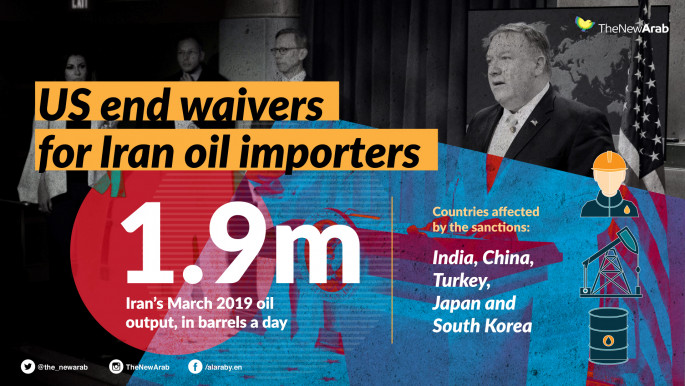Saudi Arabia says it's ready to replace Iranian oil
Saudi Arabia is prepared to fill in the gap for oil demand created after the US ended sanctions exemptions to Iran's oil customers, said Riyadh's energy minister.
Khalid al-Falih told Russian state news agency RIA that there could be an extension for the global deal to coordinate oil production levels after June, Reuters reported.
"We will look at (global oil) inventories - are they higher or lower than the normal level and we will adjust the production level accordingly. Based on what I see now ... I am eager to say that there will be some kind of agreement," Falih told RIA.
Meanwhile, Iran President Hassan Rouhani said Tuesday Iran will continue its oil exports in the face of increased US pressure and sanctions.
US President Donald Trump announced last week Washington will no longer grant sanctions exemptions to Iran's oil customers, intending to "bring Iran's exports to zero, denying the regime its principal source of revenue".
Oil prices skyrocketed after the White House announcement. Eight governments, among them Washington's allies like India, were initially given six-month reprieves from the unilateral US sanctions on Iran.
The White House said that Saudi Arabia and the UAE - who back Trump's hawkish stance against regional rival Iran - would work to make up the difference in oil to ensure that global markets are not rocked.
Iranian Oil Minister Bijan Zanganeh said on Friday Saudi Arabia and the UAE are overstating their oil capacities.
Saudi Arabia is currently exporting 7 million barrels of oil a day. Under an OPEC deal on supply it can export up to 10.3 million barrels.
Zanganeh also said that the tightening of US sanctions was "not a bluff, but (the result of) very violent hostility towards the Iranian nation".
President Donald Trump withdrew from the Non-Proliferation Treaty (NPT) with world powers last year and reimposed crippling sanctions on Iran. The deal, negotiated by his predecessor Barack Obama, agreed Iran would drastically scale back its nuclear programme in return for promises of sanctions relief.
US officials have said they are aiming to choke off Iranian revenue so as to reduce the clerical regime's regional clout, notably its support for militants groups such as Lebanon's Hizballah.
 |
Agencies contributed to this report.
Follow us on Twitter: @The_NewArab

